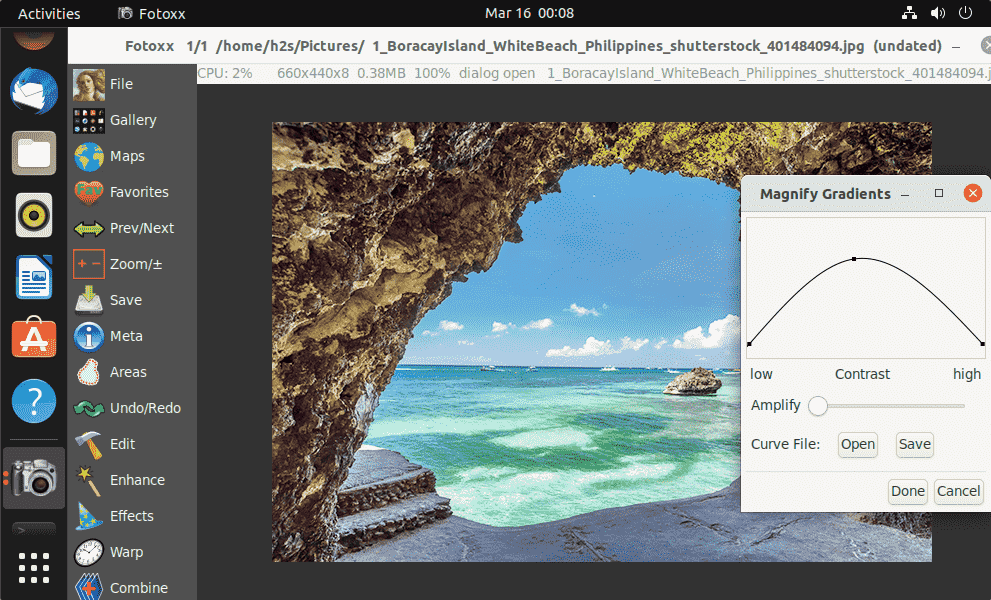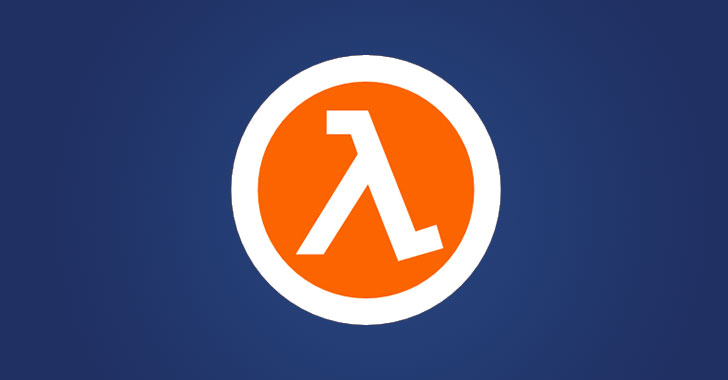Research & Articles
All Categories
For Vendors
About Us
Explore ERP Software
More from software advice
Research & articles
All categories
For vendors
About us
Explore ERP Software
By Application
By Industry
+ Show all
+ Show all
With an integrated system that includes ERP, financials, commerce, inventory management, HR, PSA, supply chain management, CRM and more – NetSuite enables fast-growing businesses across all industries to work more effectively by a…Read more
4.09 (783 reviews)
Bitrix24 is a client management solution that provides a platform for businesses to organize and track interactions with potential or existing clients and partners. The software allows users to log and manage client interactions, …Read more
4.04 (495 reviews)
Odoo Point of Sale (POS) is part of Odoo’s integrated suite of business applications. The module is available both on and offline and provides unified data across stores and has an integrated inventory management function. Od…Read more
4.16 (428 reviews)
CAFLOU is an easy-to-use online business management software for small to mid-sized companies. This digital solution enables users to streamline company and project management and increase team performance. It is ideal for compani…Read more
5.00 (12 reviews)
For businesses looking for a robust Project Management system that includes a full Portfolio Project Management application, KeyedIn Projects offers a way to monitor resource allocation, as well as prioritize projects….Read more
4.32 (44 reviews)
Die Agenturverwaltung is a financial management software designed to help businesses manage projects, billing, time tracking, accounting and budgeting. The platform enables administrators to manage incoming and outgoing invoices a…Read more
4.88 (8 reviews)
OneStream XF is a market-leading CPM 2.0 solution that unifies and simplifies financial consolidation, planning, reporting, analytics and financial data quality. Modernize financial processes, replace multiple legacy applications,…Read more
4.85 (53 reviews)
Katana is a manufacturing ERP that gives you a live look at all the moving parts of your business — sales, inventory, and beyond. Combining a visual interface and smart real-time master planner, Katana makes managing inventory and…Read more
4.80 (125 reviews)
Vepos is an ERP system that includes more than 25 modules. Dealers receive an extensive inventory control system. Orders from different shop systems can be processed. A touchscreen-enabled software checkout is available for retail…Read more
5.00 (1 reviews)
Wrike is a cloud-based project management platform for teams of 20+ that is suitable for both large enterprises and SMBs. It supports remote work for various teams. This solution comes with Gantt charts, calendars, workload view f…Read more
4.24 (1701 reviews)
Deskera All-In-One
ERPNext
ProShop
QuickBooks Desktop Enterprise
FreshBooks
Brokermint
Why choose SIT Alemira Labs? Bring Active Practice to an unlimited number of students and discover true scalability through automatic assessment and grading. Enable machine learning and MI-driven intelligent tutor systems (ITS) t…Read more
5.00 (1 reviews)
VOGSY is a professional services automation (PSA) solution built on the Google Cloud Platform. It provides everything a professional services organization needs to streamline and run its business from quote to cash. VOGSY is a nat…Read more
4.48 (21 reviews)
MRPeasy is a manufacturing software for small manufacturers. The software is a suite comprising production planning, CRM, procurement, supply chain management, and inventory control modules. The application features a drag-and-dro…Read more
4.58 (45 reviews)
QuickBooks Enterprise is an accounting solution designed for SMBs across different industry verticals such as construction, nonprofit distribution, manufacturing, and retail. With QB Enterprise solution, any business owner can exp…Read more
4.50 (18600 reviews)
Microsoft Dynamics 365 is a cloud-based CRM ecosystem for small, medium and enterprise organizations, with a focus on Sales, Field Service, Customer Service complete with strong integrations with Microsoft’s other Office 365 offer…Read more
4.31 (4194 reviews)
FreshBooks takes billing out of your hands and puts it on autopilot. Set up automated invoicing, online payment options (ACH and Credit Card), and late payment reminders to get paid 2x faster. Next, boost team productivity with pr…Read more
4.47 (3550 reviews)
ECI Shoptech brings together industry-leading solutions E2 SHOP and JobBOSS to create the next evolution in job shop business management: JobBOSS². Designed specifically for job shops and make-to-order manufacturers, JobBOSS² is a…Read more
4.25 (855 reviews)
Cloud-based residential real estate brokerage solution including robust real estate accounting, commission automation, transaction management, and more. Simplify and automate your office to move at the speed of the market. No mo…Read more
4.51 (788 reviews)
BQE Core makes it easier and more profitable to run your business. It organizes information, automates repetitive tasks and allows your firm to spend more time providing service to your clients instead of managing internal process…Read more
4.42 (514 reviews)
Providing an entirely Web-based project management and accounting solution for professional services, Deltek Vision is a project-based, mobile and integrated system built specifically for architect and engineering firms….Read more
4.07 (462 reviews)
QuickBooks Desktop Enterprise
Dynamics 365
FreshBooks
Wrike
JobBOSS²
Brokermint
NetSuite
BQE CORE Suite
Bitrix24
Deltek Vision
Odoo
Sage Intacct
Enterprise resource planning (ERP) software offers a set of tools that share a common process and data model, covering end-to-end operational processes, such as accounting, analytics, inventory management, customer relationship management (CRM), and human resources (HR) management.
Put simply, ERP software unites otherwise segregated processes into a central data network, helping businesses better track information while gathering insights from across the departmental spectrum.
Here’s what we’ll cover:
It might be a mouthful to say, but an ERP software system has plenty of benefits for businesses to chew on. Let’s discuss a few of these.
In a rapidly evolving technology landscape, businesses that utilize an ERP software solution to streamline operations will reap benefits such as:
Because of the costs and resources necessary to implement on-premise systems, ERP software has been traditionally associated with large enterprise businesses. But with the increasing availability of cloud computing solutions and Software-as-a-Service (SaaS) ERP subscription models, the typical buyer profile has expanded to include the following:
To adequately compare ERP software solutions, it’s important to understand the functionality each vendor has to offer. Here are the most common features found in ERP software systems:
Accounting: Accounting is one of the most basic yet the most developed functions of ERP software. It helps businesses manage and automate core accounting operations, including payroll, fixed asset tracking, and other financial management processes. Because ERP software consolidates disparate business processes, users can analyze financial data from across their organization in a single system.
Business intelligence: To assess business performance, companies need detailed and insightful analytics data, and ERP software provides exactly that. ERP software’s business intelligence functionality includes customizable dashboards that illustrate operational data from across an organization, giving leaders the insights they need to analyze performance and make informed business decisions.
CRM: The CRM module manages customer data, ranging from client information and prospective leads to help desk resources and live chat interactions. It not only gives businesses a more comprehensive and accurate view of their customer data but also allows for the automation of client-related activities, such as order processing, so you can anticipate their needs before they even contact you.
HR management: ERP software broadens the scope of HR management by automating core HR functions, such as timesheet management and benefits administration. With employee data and advanced reporting capabilities at its disposal, it also aids in more strategic initiatives such as employee evaluation and recruitment.
Inventory management: With features such as AI-assisted inventory tracking, ERP software helps businesses maintain optimum supply levels while avoiding overstock and product outages. ERP software’s predictive analytics capability can anticipate any spikes or dips in demand, and if inventory levels get low, the software can send out alerts and even automate replenishment.
Supply chain management: The supply chain management module in ERP software helps streamline supply chain processes, from procurement through production to distribution. It includes functionality such as demand tracking, cost optimization, and delivery efficiency, with assistance from ERP software’s real-time inventory monitoring capabilities and process automation.
Among the buyers we’ve spoken to, the most sought-after features are pretty evenly distributed. Financial accounting functionality is the outlier, with 84% of buyers desiring this particular feature.
For an accurate snapshot of what ERP software costs, download our Pricing Guide.
As discussed in the “Benefits of ERP Software” section above, ERP software provides several key functions for your business, including:
Getting hands-on experience through product demos, while important, is not sufficient to evaluate ERP software options. You need to ensure that your preferred ERP software not only streamlines operations but also addresses business concerns. Engage with the vendor’s sales representative and ask some tough questions, such as:
The ERP landscape is evolving at a pace we’ve never seen, with new technologies such as AI and third-party integrations becoming near ubiquitous. An ERP software system’s longevity—and your investment—therefore depends on whether these technologies are baked into the underlying system architecture, rather than tacked on after the fact.
If you’re handing over the funds for an ERP software solution, you probably want to know how your money is being spent. Ask your vendor to detail all of the initial costs (e.g., procurement and implementation), ongoing expenses (e.g., support and subscription fees), and avoided costs (e.g., ditching your old CRM software).
ERP implementation is often long and laborious, which is why many vendors offer services to guide you through the process. Businesses with limited or no IT expertise should inquire about such services and evaluate the vendor’s response time and attentiveness before signing on the dotted line.
Buying a new ERP solution is a long-term investment and should support your business needs for at least three to five years (likely more). To get the most out of your purchase, ask vendors what their product will look like one year, five years, or even 10 years down the road to gauge its future viability.
As software integrations became more prevalent, a new “postmodern” breed of ERP systems emerged. In short, the term refers to the selective adoption of stand-alone software integrations to form a unified system rather than the adoption of a single, monolithic piece of ERP software. For deeper analysis, read our article “Postmodern ERP: What It Is and Why It’s Important.”
Traditionally, ERP systems were hosted on and deployed via on-premise servers. But today, nearly every ERP vendor offers some form of cloud-based deployment, or SaaS. A cloud ERP system is hosted on the vendor’s server and accessible through a web browser or mobile app. Read about the advantages and disadvantages of each in our article “Cloud ERP vs. On-Premise ERP.”
Successful implementation of an ERP software solution requires significant capital and exhaustive preparation. Without them, implementation failure and damaging financial losses are likely. Here is an analysis of 22 failed implementation projects to help you avoid a similar fate.
Given this degree of difficulty, ERP software isn’t a viable solution for every business—especially small businesses that lack the necessary resources. But the barriers to entry are lower than they’ve ever been, with lower upfront costs and more industry-specific offerings. If you’re on the fence, check out our article “When Does a Company Need an ERP?” for a list of telltale signs that it’d be a worthy and wise investment.
To equip yourself with the ERP knowledge you need, give the following articles a read:
Here are few trends in the ERP software market that you should be aware of:
Several software categories are related to ERP, whether as a subset of the software or a stand-alone system that focuses on a core component. They include:
About Us
Careers
Vendors
Blog
View All Categories
© 2006-2022 Software Advice, Inc.
User Terms
Vendor Terms
Community Guidelines
GDM Content Policy
GDM Content Policy FAQs
Privacy Policy







